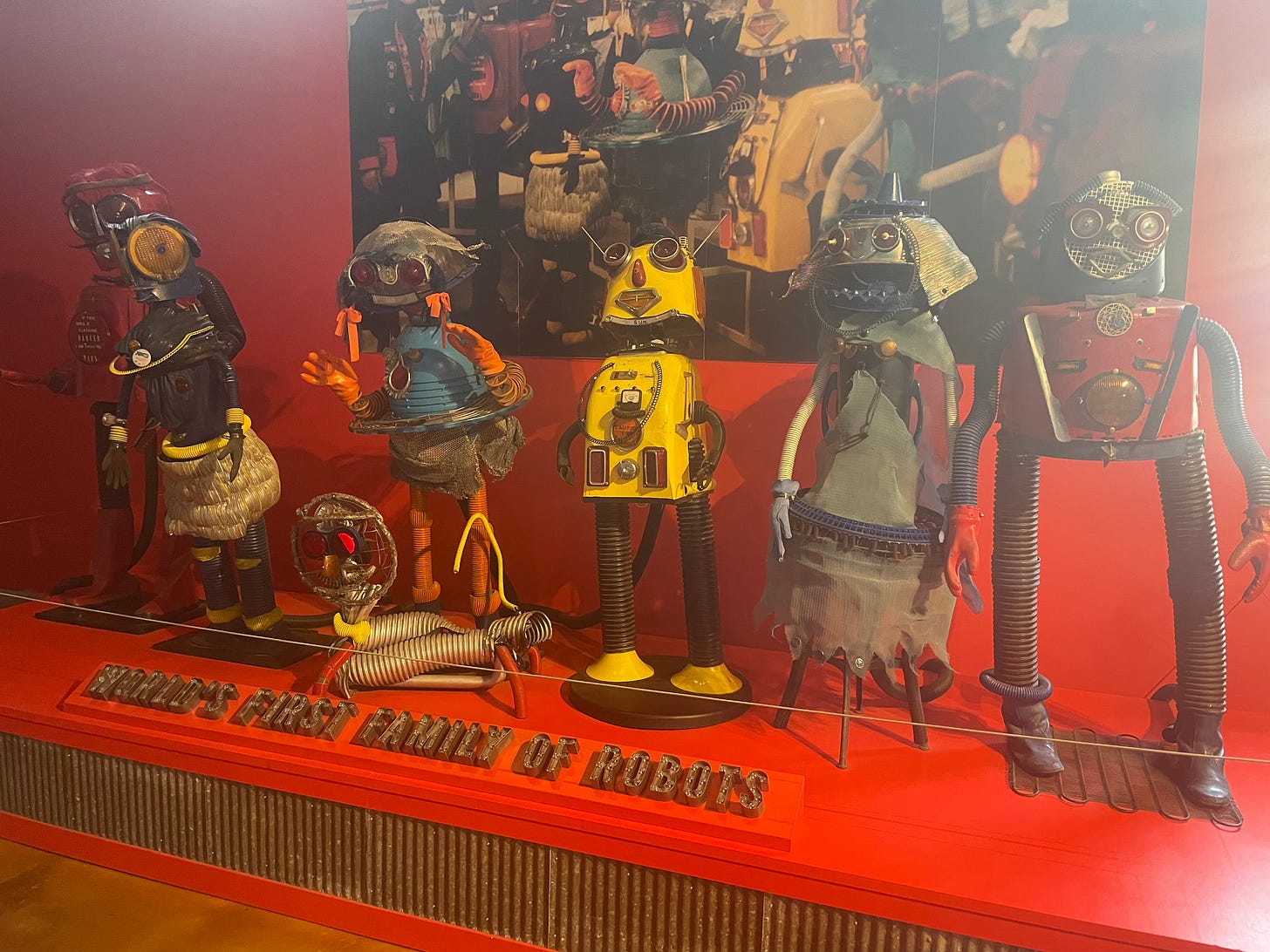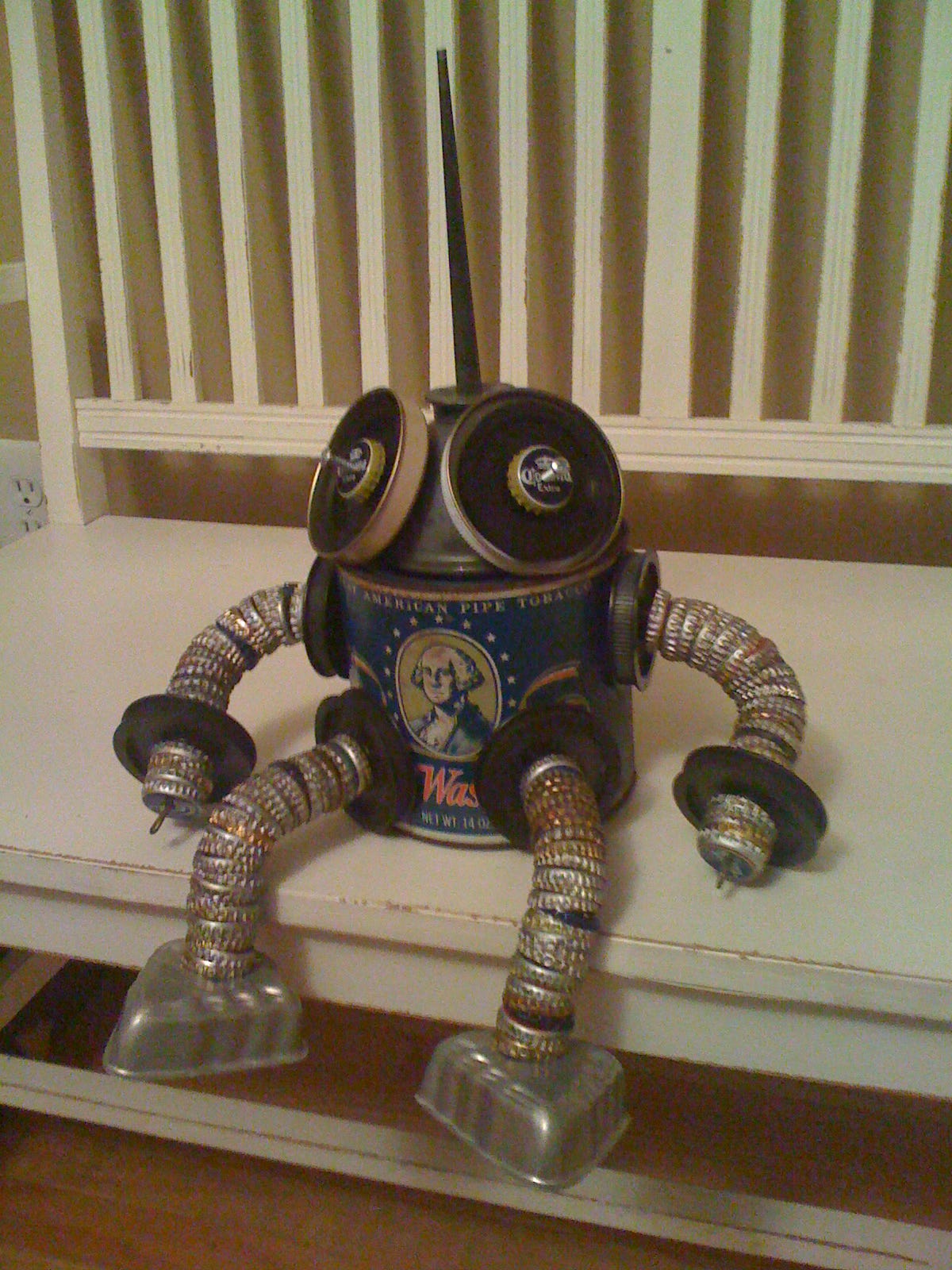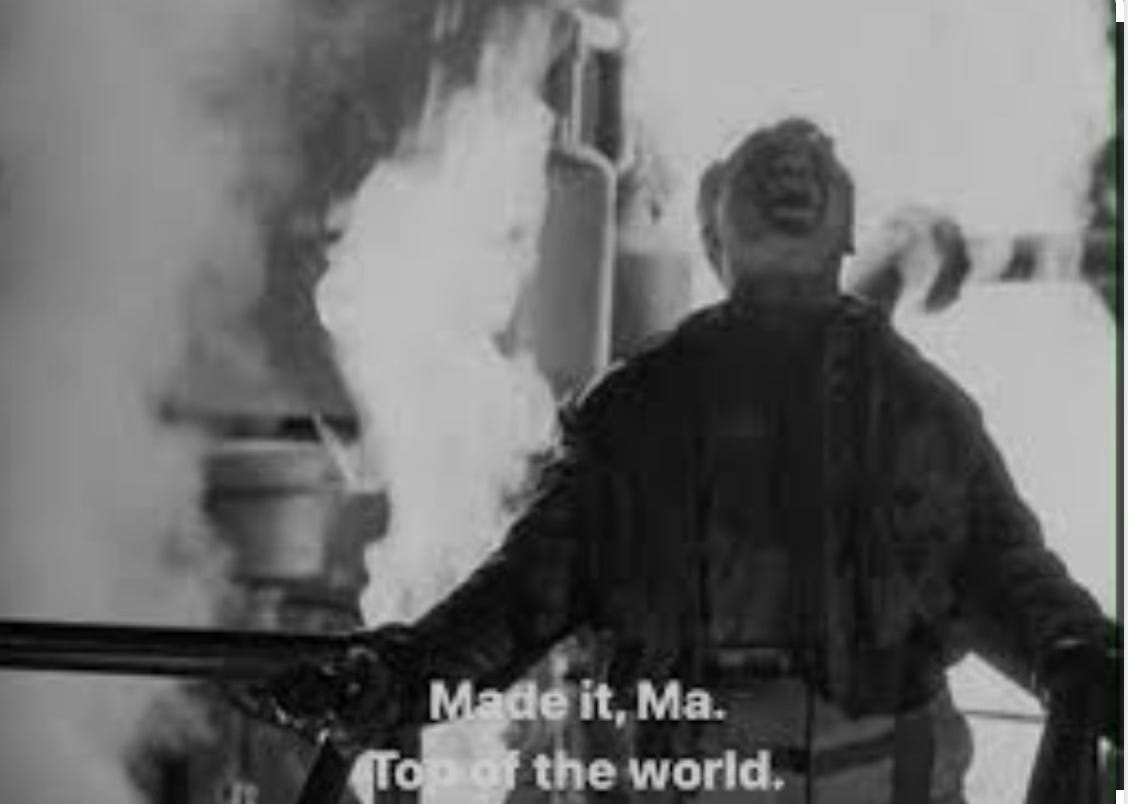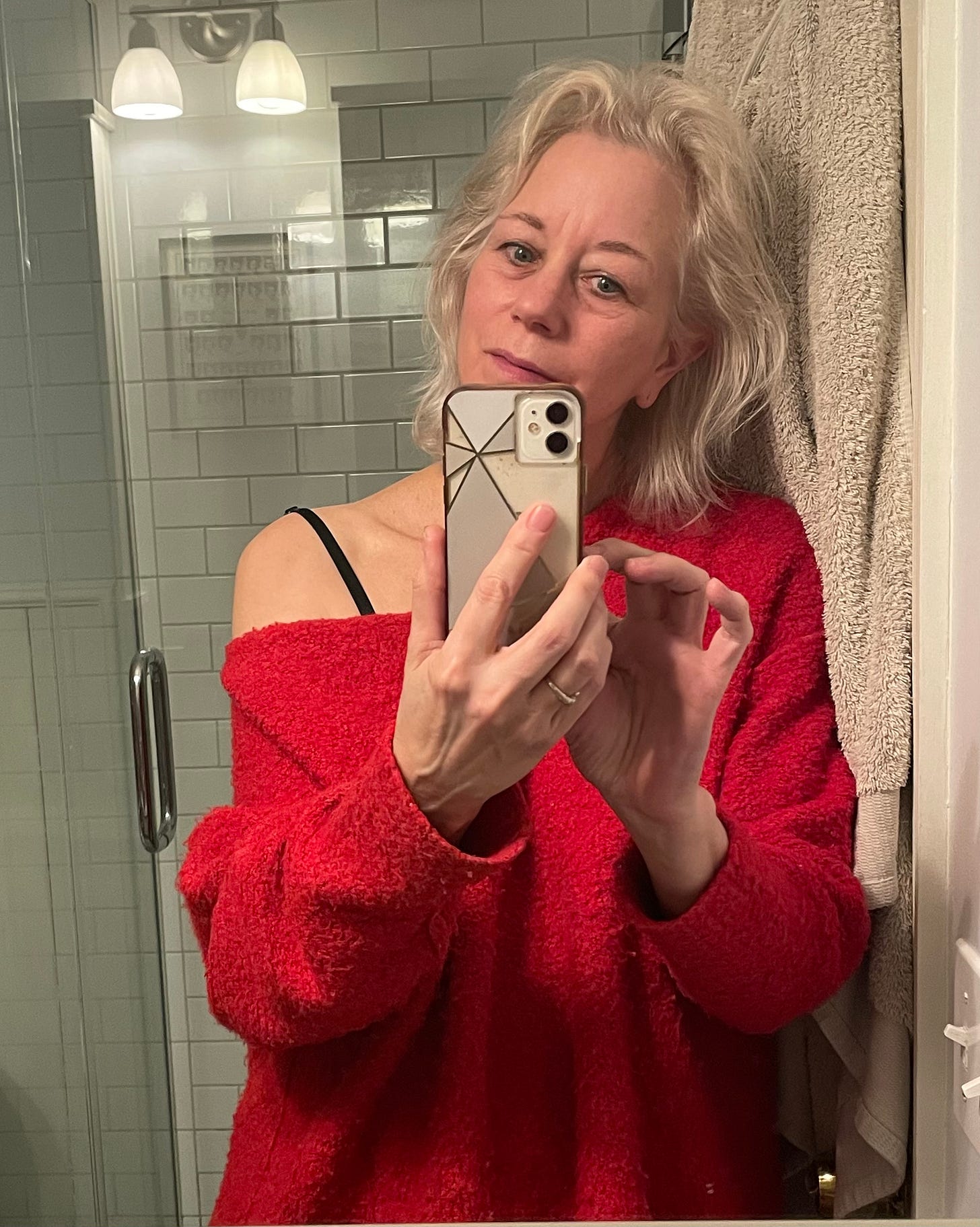More and more these days, I am noticing strange things when I read online. I’m not talking about typos; everyone makes typos. I will probably make a half dozen in this newsletter. I’m talking about straight-up weird writing that reads as if an alien translated something from English into Klingon into Esperanto into Koala bear and then back into English.
For example.
"But while as limited series, Fool Me Once will not get a second season, this performance ensures they will continue investing in many more Harlan Coben stories to come, as they already have been for years."
Where to start? What is the antecedent for “they”? (Pretty sure it’s Netflix.) Still — “But while as limited series” doesn’t work that well even if you insert the missing “a.” Maybe better to write: “Fool Me Once was conceived as a limited series and no sequels are planned, but its success all but ensures that there will be more Coben projects at Netflix.” (Back in my day, straight news stories didn’t make predictions, although this one happened to come true. Yay, Harlan!)
The source of this mish-mash: Forbes.com. FORBES!
Devon Smith’s robot family is part of American Visionary Art Museum’s permanent collection and is on display now. I love them, but I wouldn’t let them write a book.
Less egregious, but still clunky AF was this:
Referencing her previous gold engagement ring, which she has worn since Tippett popped the question in December 2022, [Sara] Bareilles shared, "We bought the gold leaf at an arts fair in Mexico City last December because looking for a ring started to feel like it was distorting and eclipsing the beauty of choosing each other."
This is from People.com. (Yes, my Google feed is generally garbage, but in this case I had just downloaded some of Bareilles’s music, so I guess that’s why my phone felt I needed to read this story.) Referencing? Shared? I can think of a half dozen better/clearer ways to write the above. And every editor I wrote for during my 20 years of journalism would have made me rewrite this. Even the dumb ones.
(By the way, yesterday People sent out a story describing Kandi Burruss of The Real Housewives of Atlanta as a “Grammy sinner.” Yeah, that’s a typo, but even odds it was the result of autocorrect over-correcting a human’s swiftly moving fingers. And that’s what AI is, a more sophisticated form of predictive text.)
While I am a plaintiff in one of the AI class-action suits, I also have a subscription to an AI service because I wanted to see what those mf’ers are up to. (Having a dozen of one’s books — more than a million words — “scraped” can make a person a little feisty/paranoid.) So the other day, I asked a bot to break story on the novel I’m revising, posing the question: Can you help me write a story about a 68-year-old woman who goes to Paris and finds herself caught up in the search for a Pakistani antiquity, a statue of a Phoenix-like bird?
I’m going to post the result below my usual end-of-newsletter features, along with annotations. It’s tricky stuff because it points up that narrative can be as cliched as any phrase. But at least I, unlike AI, didn’t turn the scenario into a white-savior story.
Granted, I might be a little hypersensitive on this topic because I work in genre, which is often dismissed as formulaic. Given the condescension I seem to inspire in some literary types, I wouldn’t be surprised if they thought that AI is already writing my books. But make no mistake, AI is being trained to imitate style as well as story.
Every novelist I know has been approached by at least one person offering up a killer idea/story for a 50-50 split. “You’d just have to write it,” they say. It’s almost as if they think that the writers were robots all along, machines that just churn out words. I wish it were that easy.
Actually, I don’t.
A piece from my personal collection — doesn’t everyone have a personal collection of folk art robots? — artist unknown. Purchased from the American Folk Art Museum in NYC circa 2010.
Reading/Read: The Vulnerables, Sigrid Nunez; This Will Be My Undoing, Morgan Jerkins; Broiler, Eli Cranor; Everybody Who Was Anybody: A Biography of Gertrude Stein, Janet Hobhouse; War and Peace.
Rereading: Good in Bed, Jennifer Weiner.
Listening: Doppelgänger, Naomi Klein; Hidden Valley Road, Robert Kolker; War and Peace.
Me, Me, Me.
I am mentioned in passing in the New York Review of Books, in a rave for Perplexing Plots: Popular Storytelling and the Poetics of Murder by David Bordwell, although I infer that the book, which I plan to read, is not necessarily impressed with me. But, hey, the passage cited in the review mentions three writers, and the other two are Wilkie Collins and Quentin Tarantino. I can live with that. “It tracks, across novels, plays, and films, from the era of Wilkie Collins to the newly minted gimmicks of Quentin Tarantino or Laura Lippman, the methods by which such works have educated readers and spectators to interpret new forms of surprise, in an ongoing collaborative give-and-take.”
I — well, Tess Monaghan — was a clue on Jeopardy. And the person who first alerted me? Harlan Coben. Crime fiction. It’s a flat circle, man.
.
Now here’s the story that the bot wrote, based on my prompt. By the way, I also asked the program to write the same story in “the style of Zadie Smith” and it still began “Once upon a time.” But the main character was named Madeleine.
“Once upon a time1, in a quaint little town, lived a vibrant and adventurous 68-year-old woman named Evelyn. She had always dreamed of traveling to Paris, the city of love and eternal charm. One crisp autumn morning2, Evelyn decided to turn her long-held dream into reality and booked a flight to the enchanting French capital.
As Evelyn strolled along the cobblestone streets of Montmartre, an unexpected twist of fate awaited her.3 She stumbled upon a small antique shop tucked away in a quiet corner. The shop was filled with a treasure trove of artifacts from around the world, each with its own story to tell. Little did she know that her life was about to take a thrilling turn4.
Deep within the shelves, amidst the ancient relics, Evelyn's eyes met a captivating statue. It was a magnificent Phoenix-like bird, emanating a sense of mystique and wonder. The shopkeeper, Monsieur Dupont, noticed Evelyn's fascination and shared the story behind the statue.
Legend had it that the statue was no ordinary artifact; it was believed to be a Pakistani antiquity with the power to bring good luck to its possessor. Monsieur Dupont revealed that the statue had been stolen5 from a remote village in Pakistan many years ago. The villagers, who regarded it as a sacred artifact, had dreamt of its return ever since.
Evelyn's heart swelled with empathy, and her adventurous spirit urged her to embark on a quest to reunite the statue with its rightful owners. Determined to bring hope and happiness to the Pakistani village, she sought assistance from a local historian and archeologist named Professor Laurent.
Together, Evelyn and Professor Laurent delved into the depths of Paris, following the trail of clues that could lead them to the statue's origin. Their journey took them through famous landmarks, hidden tunnels, and intriguing encounters with fellow adventurers who had also heard the tale of the Pakistani antiquity.
As they dug deeper, they realized that the statue's story was intertwined with a rich cultural history, spanning continents and centuries of human existence. The search became a testament to the power of unity, respect, and the indomitable spirit of one woman seeking to make a difference.
Their voyage led them to a remote village6 nestled in the majestic Karakoram Mountains of Pakistan. The villagers, initially hesitant, welcomed Evelyn and Professor Laurent with open arms upon learning of their noble quest. Together, they held a grand ceremony, where the statue was returned to its rightful place.7
Evelyn, now forever connected to the village and its people, witnessed the transformation the artifact brought to their lives. The village flourished with newfound hope and prosperity, and Evelyn's heart was filled with immeasurable joy.
As she bid farewell to her new friends, Evelyn realized that her journey had not only been about restoring a stolen artifact but also about finding herself in the process. Paris had given her the opportunity to discover her true purpose and make a positive impact on the lives of others.
With memories etched in her heart, Evelyn returned to her hometown, forever carrying the spirit of adventure and the belief that one person can indeed change the world. Her story became legendary, inspiring others to embark on their own journeys of self-discovery and making a difference in the world.
Thus, the tale of Evelyn, the 68-year-old woman who ventured to Paris and got caught up in the search for a Pakistani antiquity, the statue of a Phoenix-like bird, became a timeless reminder that age is just a number8 and that the power of a single person's actions can make a lasting impact on the lives of many.”9
No, just no.
Have you ever met a cliche you don’t like?
Is a twist of fate ever expected? If so, is it truly a twist? Discuss.
Are you fucking kidding me? Was AI trained on the dime novels of the early 20th century? At least those are in the public domain. Still, Lady Audley’s Secret was much better than this.
Monsieur Dupont, we have a provenance problem. If the statue is stolen, you can’t sell it, unless you’re a crook/bad person.
A “voyage” to a “remote village” “nestled” in the mountains? Is it surrounded by water? WTF?
This is problematic with a capital P and that rhymes with T and that stands for — what does it stand for, AI — Trouble. NO WHITE SAVIOR NARRATIVES, AI. True, Evelyn may be a POC for all I know, but a story in which people from the West win the love of “villagers” in Pakistan still strikes me as a little hinky.
OK, fine, that idea might be central to my book.






AI forgot the part where Evelyn and Professor Dupont consummate their newfound love in that remote village in the mountains, surrounded by water, to which they voyaged.
I'm laughing so hard right now- not because I like AI - hate it. But this read so much like some of my students' work. I teach a variety of college writing classes, from introduction to college composition, to exploratory, to professional. I'm not sure why some of my students who are English majors take professional writing, but invariably I end up reading book proposals. They are often just like your AI example. I really only focus on the market analysis and the letter so they can at least do that part. It is painful. I do what I can.